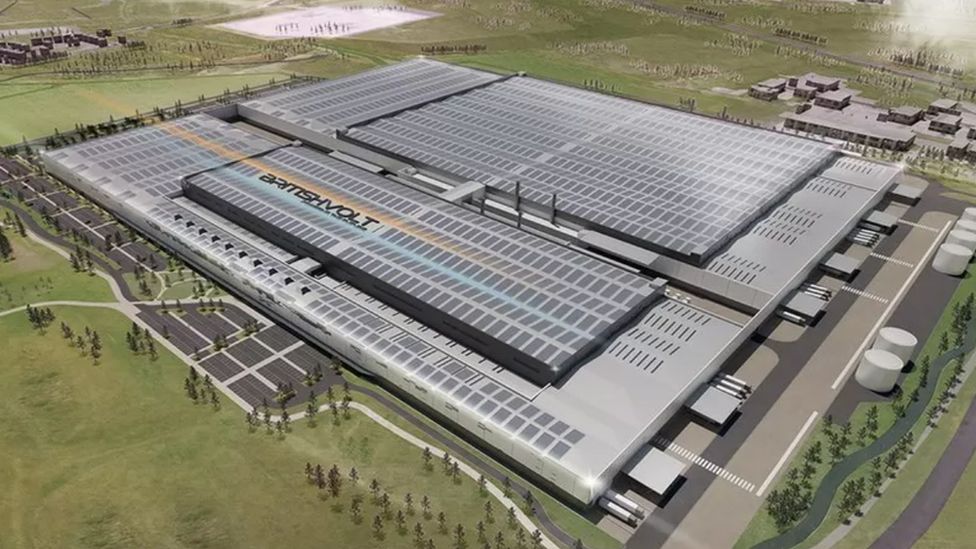
Britishvolt is expected to fall into administration on Tuesday morning, the BBC understands, after hopes of a last-minute bid for the company were dashed.
A notice is expected to be filed in insolvency courts, according to people familiar with the matter.
The firm, which plans a factory to make electric car batteries, is holding an all-staff meeting at 11:30 on Tuesday.
It is understood the company wants to tell staff before making a public announcement.
The company's board is believed to have decided at a lengthy meeting on Monday that there were no viable bids to keep the company afloat.
"It is a great shame, not just for Britishvolt and its 300 employees but also for the future of battery making in the UK," a person close to the matter said.
The company was hoping to build a new £3.8bn battery factory in the Port of Blyth in Northumberland.
An existing shareholder added: "It's madness, I have been offering a variety of possible solutions. Falls on deaf ears. It appears, to me, that management wants the company to go into administration. A real shame for the people of Northumberland and the country."
The ambitious, but financially troubled, start-up only narrowly avoided collapse at the end of last year after an emergency lifeline was extended by one of its investors, the commodity trading giant Glencore.
Last year, Britishvolt asked the government to advance £30m of a promised £100m in support, but was refused as the company had not hit agreed construction milestones to access the funds.
Industry experts say the UK will need several battery factories to support the future of UK car making as petrol and diesel engines are phased out over the next decade.
The UK currently only has one Chinese-owned plant next to the Nissan factory in Sunderland, while 35 plants are planned or already under construction in the EU.
But both industry and government sources remain confident that this plant will eventually be built - whoever ends up owning it.


The founders of Britishvolt were trying to create a £4bn facility, from scratch, without the backing of a major manufacturer.
What they did have was a vision which they hoped could surf a wave of political support - and attract the necessary funding.
They looked first for a location in Wales, before settling on Cambois, in the Blyth Valley.
The site, formerly a power station, was good. It had a deep water port, good transport links and access to plentiful power. It also happened to be in a "red wall" constituency captured by the Conservatives in 2019.
But political support wasn't enough. Delays to construction meant £100m of public funding never materialised. With costs rising and no firm orders, the money ran out.
The question is, what happens next? Speak to pretty much anyone in the motor industry, and they'll tell you that without gigafactories, the long-term future for UK manufacturing looks bleak.
So the plant itself could still become a reality. But for that to happen significant investment will be needed.
And any potential buyer will know that their chances of success will be much greater if they can get an established manufacturer on board.

https://news.google.com/__i/rss/rd/articles/CBMiLGh0dHBzOi8vd3d3LmJiYy5jby51ay9uZXdzL2J1c2luZXNzLTY0MzAzMTQ50gEwaHR0cHM6Ly93d3cuYmJjLmNvLnVrL25ld3MvYnVzaW5lc3MtNjQzMDMxNDkuYW1w?oc=5
2023-01-17 11:15:28Z
1733408060
Tidak ada komentar:
Posting Komentar